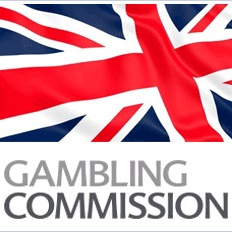Gambling Just a Short-term Solution to Financial Problems

There was once a time when the only real casinos to be found in the United States were either located in Las Vegas or Atlantic City. After the Indian Gaming Regulatory Act was passed in 1988, however, tribal casinos began to pop up on the landscape, offering people places to play closer to home. Over the last 10 years, gambling options have expanded even further with states like Pennsylvania, Maryland, New York, Ohio, Delaware and many others legalizing and regulating their own gambling industries. In fact, out of the USA’s 50 states, just Hawaii and Utah do not receive income from any form of gambling, such as lotteries, casinos, racinos, and pari-mutuel betting.
So what’s behind the sudden rapid expansion of legal gambling? Well, it’s not due to the pursuit of liberty, and an effort to see people given the freedom to gamble. Instead, the motivation comes down to money, as states are increasingly looking to gambling as a way to fill their depleted coffers. While the logic behind taking a chance on legalized gambling seems sound, a new report from the Rockefeller Institute entitled ‘State Revenues From Gambling: Short Term Relief, Long Term Disappointment’ suggests that gambling revenues won’t fully solve any individual state’s financial problems.
A Viable Revenue Source
Most people think about the impact that the recession has had on businesses and individuals, but not on the toll it has taken on state government budgets. However, when companies are failing and people are out of work, tax revenues decrease, and as a result the economic crisis that occurred in 2007 and 2008 has left many states with major deficits. This inspired some out-of-the-box thinking, and so state legislators who were reluctant to increase income taxes or sales taxes which would have placed more strain on struggling businesses and families decided instead to set their sights on so-called vice taxes. Legalizing gambling was therefore seen as a way to increase revenues, without putting undo burden on all of a state’s residents.
What the Rockefeller Institute Report Shows
The Rockefeller Institute Report examines how the legalization of gambling in Pennsylvania, Maryland and other states has actually benefited them from a financial standpoint. The report subsequently found that in most cases gambling revenue was only contributing about 2 to 2.5 percent of revenues for state budgets.
Overall, the amount of tax revenues and fee income brought in by gambling only increased by around 1.8 percent from 2008 to 2015 despite a number of states legalizing gambling during that time. The report indicates that as more states regulate gambling, competition increases, making gambling less and less profitable for state governments. This is particularly true when a neighboring state legalizes gambling, leading people who once vacationed and gambled next door to stay and play closer to home instead.
The Major Takeaway
The aim of the Rockefeller Institute Report isn’t to tell states to forgo plans to legalize gambling. On the contrary, the report clearly shows that regulated gambling can provide large increases in revenue in the early stages in the form of licensing fees and continual revenues from taxation. What the report shows, though, is that no state should think that they can balance the budget with revenues from gambling alone.
The biggest financial benefit of gambling will be in the short term when it can result in a sudden big influx of cash, although it can still then provide some steady income afterward. By using the information in the Rockefeller Institute Report, states can more realistically project what revenues may be, and therefore better plan for budget expenditures.
Nevada and New Jersey
In 2015, Nevada generated $24.6 billion in gambling revenues, which although 3% higher than the previous year’s tally, still resulted in $662 million in net losses for the state compared to $744 million in net losses in fiscal year 2014. The story was similarly repeated in New Jersey, where the state’s gross gaming revenues fell by 6.5% to $2.6 billion in 2015, an amount half that of its 2006 peak of $5.2 billion. It was also the smallest amount recorded since 1987.
While both Nevada and New Jersey regulated online gambling in 2013 in order to boost their dwindling revenues, the amounts their nascent industries have brought in have been far lower than the initial forecasts which framed online gambling as a potential cure for their ailing state budgets.
Instead, the recent industry trend has been for gambling venues such as casinos to now focus on offering non-gaming entertainments for visitors to enjoy, and in 2015 Nevada’s gambling revenues actually dropped below 35% of total income for the first time ever, indicating the shift towards leisure activities was gaining pace.










